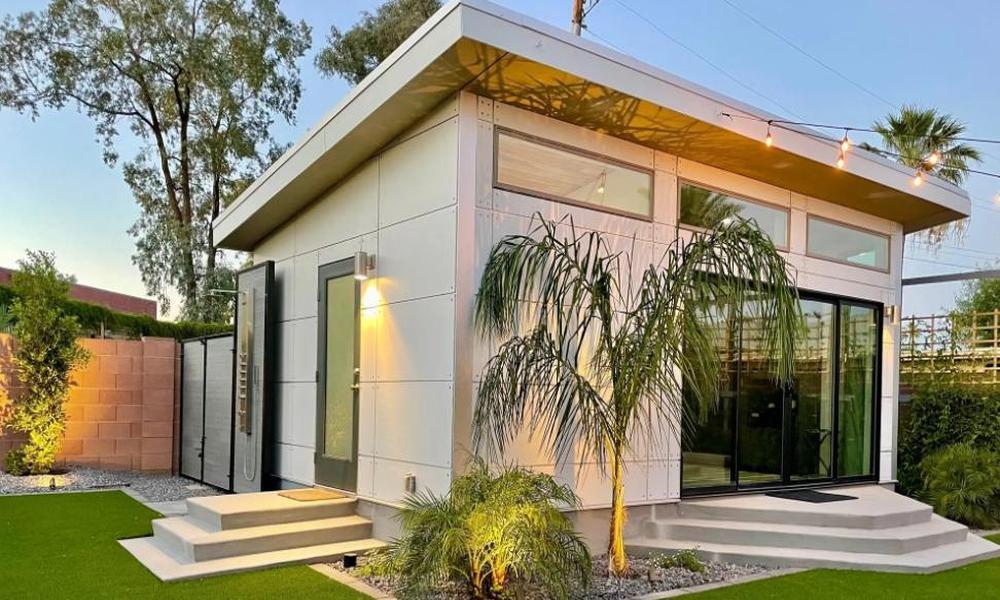
Introduction
In recent years, the popularity of tiny or small homes has skyrocketed as people seek sustainable and minimalist living options. These compact dwellings offer a range of benefits that extend far beyond their small size. In this blog post, we will explore the world of tiny homes and uncover why they are a sustainable solution with endless benefits.
Environmental Impact
One of the most significant advantages of small homes is their minimal environmental footprint. With their smaller size, these homes require fewer materials to build, reducing the demand for resources. Additionally, small homes often employ energy-efficient designs and appliances, which result in lower energy consumption. By choosing a tiny home, individuals can significantly reduce their carbon footprint and contribute to a more sustainable future.
Financial Freedom
Tiny homes provide an opportunity for financial freedom and flexibility. The lower costs associated with building and maintaining a tiny home allow individuals to save money and allocate their resources elsewhere. Many tiny homeowners find themselves living mortgage-free or enjoying reduced monthly expenses, allowing them to pursue their passions, travel, or invest in experiences rather than being tied down by a large mortgage or rent payments.
Simplified Living
Living in a tiny home requires a shift towards a simpler lifestyle, which often brings a sense of liberation and contentment. With limited space, individuals are forced to declutter and prioritize what truly matters to them. This emphasis on intentional living helps to eliminate excess belongings and promotes a more mindful approach to consumption. By embracing a minimalist lifestyle, tiny homeowners often find themselves feeling lighter and more at peace with their surroundings.
Mobility and Flexibility
Another benefit of tiny homes is their mobility and flexibility. Many homes are built on wheels, allowing homeowners to easily move and explore different locations. This mobility provides an opportunity to live closer to nature, travel, or adapt to changing circumstances without the hassle of selling or renting out a traditional home. Mini homes offer the freedom to design a lifestyle that suits individual needs and desires.
Customization and Creativity
Despite their small size, small homes offer ample opportunities for creativity and customization. Every inch of space in a tiny home is valuable, leading to innovative design solutions and maximizing functionality. From foldable furniture to hidden storage compartments, tiny homeowners can personalize their living spaces to reflect their unique tastes and preferences. This level of customization fosters a sense of ownership and pride in the home, creating a truly special and personalized living environment.
Community Connection
Tiny homes often attract individuals who value community and connection. Many tiny home communities have emerged, where like-minded individuals live in close proximity, fostering a strong sense of camaraderie and support. These communities provide opportunities for collaboration, shared resources, and a built-in support system. Living in a tiny home can open doors to meaningful relationships and a sense of belonging in a community of like-minded individuals.
Sustainability and Self-Sufficiency
Tiny homes encourage a more sustainable and self-sufficient way of living. With limited space, homeowners are inclined to adopt eco-friendly practices such as composting, rainwater harvesting, and growing their own food. Additionally, tiny homes often utilize renewable energy sources like solar power, reducing reliance on conventional energy grids. By embracing self-sustainability, tiny homeowners not only contribute to environmental preservation but also gain a sense of empowerment and independence.
Emotional Well-being
The benefits of mini homes extend beyond the physical aspects. Many tiny homeowners report improved emotional well-being and enhanced quality of life. The simplified lifestyle, reduced financial stress, and stronger connection to nature and community all contribute to a greater sense of happiness and contentment. Living in a tiny home allows individuals to focus on what truly matters, fostering a deeper appreciation for the present moment and a renewed sense of gratitude.
Conclusion
Tiny homes offer a sustainable and lifestyle-oriented solution to modern living. With their minimal environmental impact, affordability, and flexibility, they provide an alternative to traditional housing options. Tiny homes promote a simpler, more intentional way of living, empowering individuals to prioritize experiences over possessions. From financial freedom to community connection and emotional well-being, the benefits of choosing a tiny home are endless. So, if you’re searching for a sustainable and fulfilling living experience, consider embracing the tiny home movement and unlock a world of possibilities.
